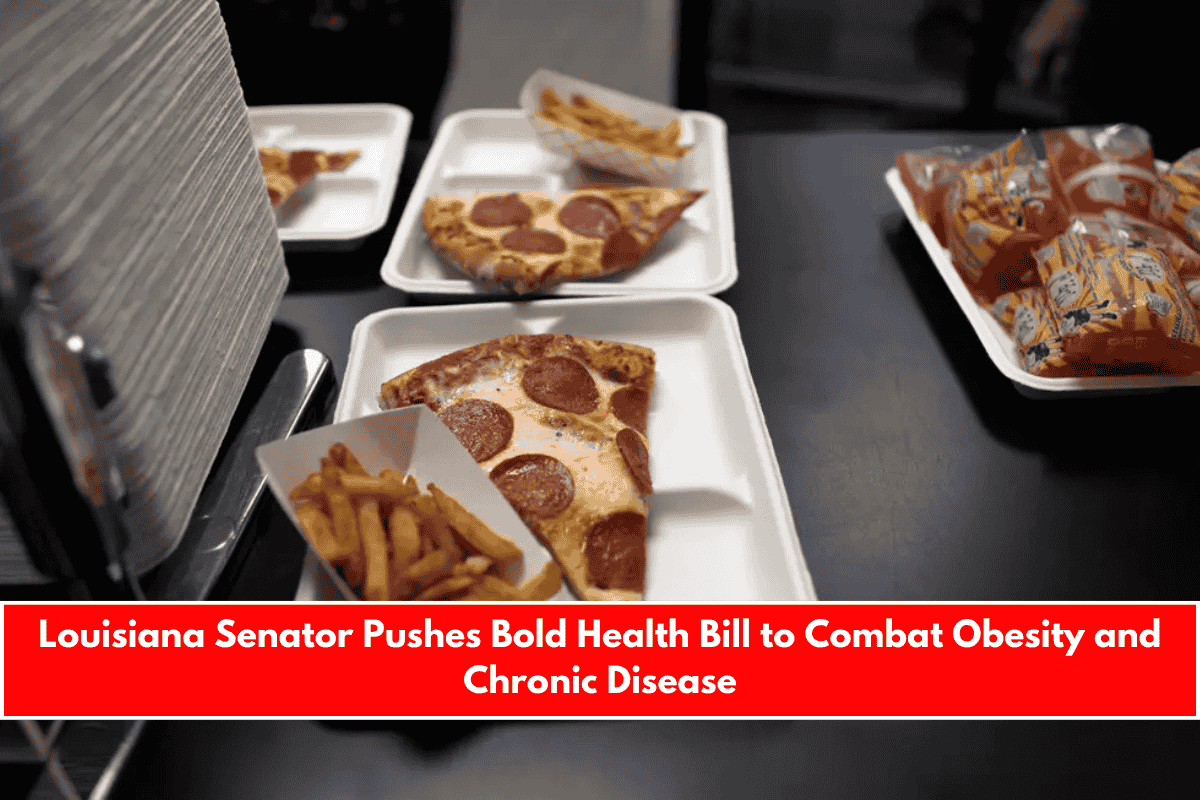Louisiana continues to rank among the nation’s worst for obesity, diabetes, and heart disease—and one state lawmaker says it’s time to take serious action.
Senator Patrick McMath of Covington is leading a sweeping proposal under the “Make America Healthy Again” (MAHA) initiative to improve how food is prepared, labeled, and served in Louisiana.
If passed, this bill could bring major changes to schools, restaurants, food packaging, and even SNAP benefit usage across the state.
What’s Included in the MAHA Health Bill?
Senator McMath’s bill outlines several bold new policies, aiming to reduce the state’s high rates of diet-related illness. Key changes in the proposal include:
- Ban on ultra-processed foods in public and state-funded private schools, starting with the 2026–2027 school year
- Restaurants must disclose use of seed oils (like soybean, canola, and corn oil) beginning January 1, 2027
- Food manufacturers required to label packaging with visible warnings for certain artificial colors, additives, and chemicals
- SNAP restrictions: Louisiana’s DCFS must request a waiver from the USDA to block the use of SNAP benefits for buying soft drinks
These efforts aim to create more transparency for consumers and encourage healthier eating choices, especially among children and low-income families.
What Are Ultra-Processed Foods?
Under the NOVA classification, ultra-processed foods are not just highly processed—they’re made largely from lab-created ingredients, artificial sweeteners, colors, and preservatives. Examples include:
- Packaged snacks like chips and cookies
- Sugary cereals
- Instant noodles and boxed meals
- Processed meats and frozen pizzas
McMath says the science is clear: these types of foods are directly linked to long-term health issues, including obesity, heart disease, and even early death. His bill targets these harmful ingredients—not the people who eat them.
“I’m not trying to ostracize the individual,” McMath told KEEL News. “I’m trying to ostracize the ingredients that are making that individual sick.”
The Debate Over Seed Oils
One of the more controversial parts of the bill is the requirement for seed oil disclosure in restaurant food. Common seed oils—soybean, corn, canola, and sunflower oil—are widely used because they’re affordable and shelf-stable.
But some new research suggests that their high omega-6 fatty acid content, especially linoleic acid, may trigger chronic inflammation and metabolic issues.
These oils have a long history in the American food system, originally developed as industrial byproducts in the early 20th century. Crisco, for example, started as a soap ingredient before it was turned into a cooking staple.
McMath argues that while these oils were once thought to be healthier alternatives, updated science tells a different story, and consumers deserve to know what they’re eating.
What the Bill Means for SNAP Benefits
A major part of the proposal also addresses how government assistance programs like SNAP (food stamps) are used. The bill would require the Department of Children and Family Services to request a federal waiver that bans soft drink purchases using SNAP.
This is a controversial topic that’s been debated nationally, but Louisiana could be the first state to successfully limit SNAP usage in this way.
McMath hopes this move ties nutrition directly to public assistance, helping low-income families make better food choices and reduce childhood obesity, which currently affects over 40% of kids in lower-income Louisiana households.
When Will These Changes Take Effect?
If the bill passes through the Louisiana Legislature:
- The school ultra-processed food ban would begin in fall 2026
- Seed oil disclosures and food label warnings would start January 1, 2027
- The SNAP waiver request process would begin shortly after passage
Of course, the proposal is facing pushback from the food and beverage industry, but McMath remains confident. He insists the goal is not to punish businesses or individuals—but to equip citizens with better information and protect the next generation from preventable health issues.
“It’s about giving people the information they need,” he said. “And protecting our kids from food choices that set them up for a lifetime of health problems.”











Leave a Reply